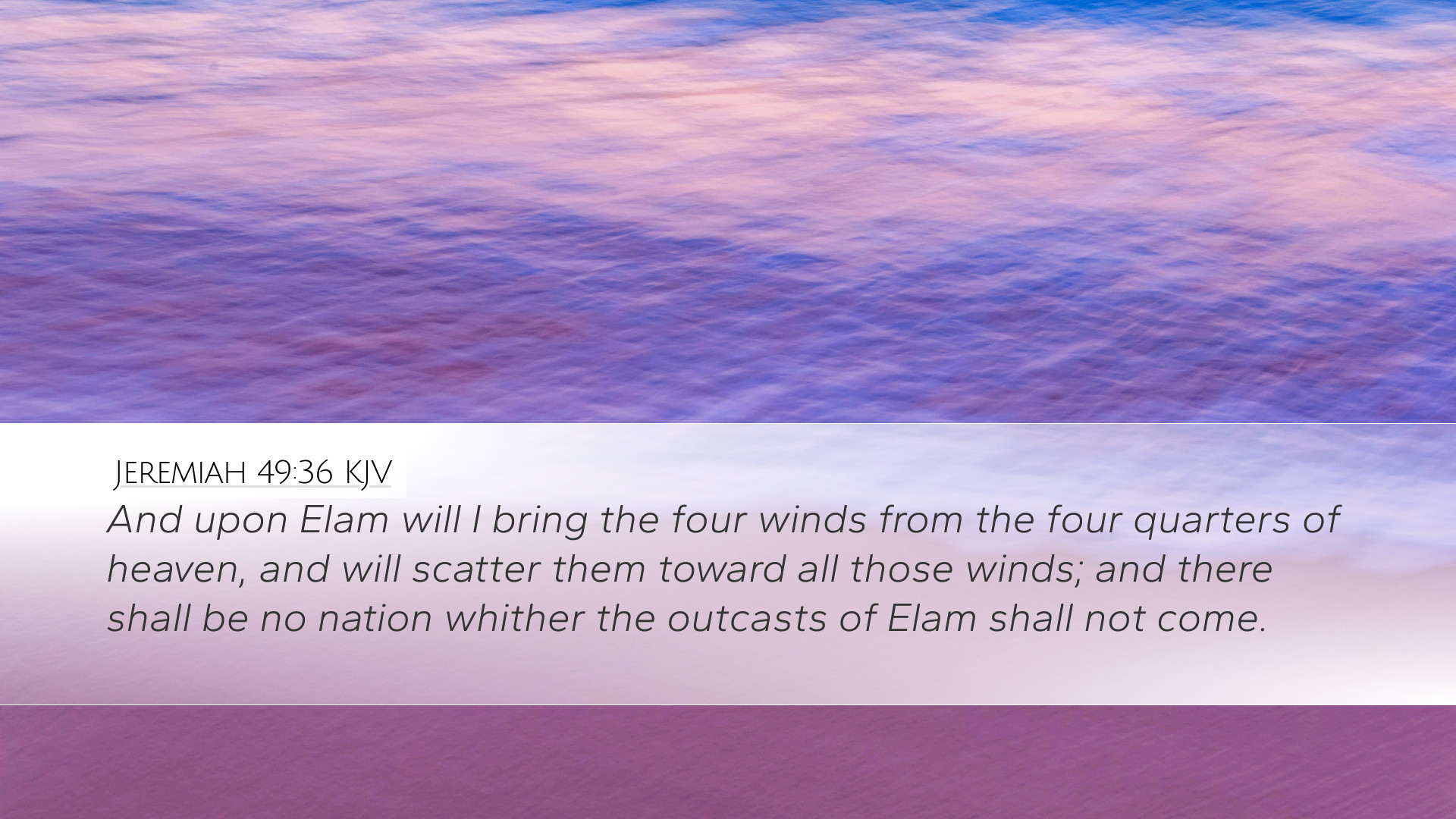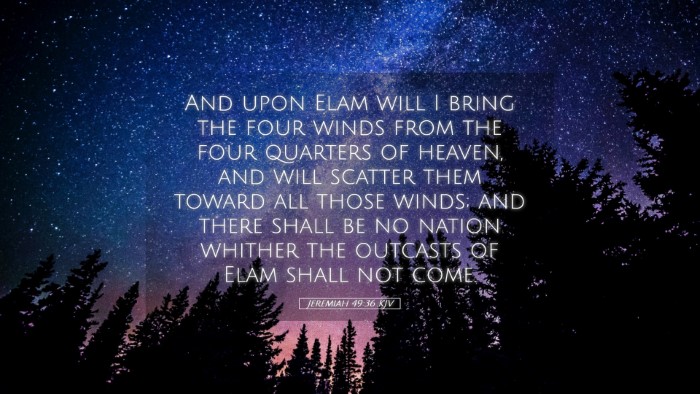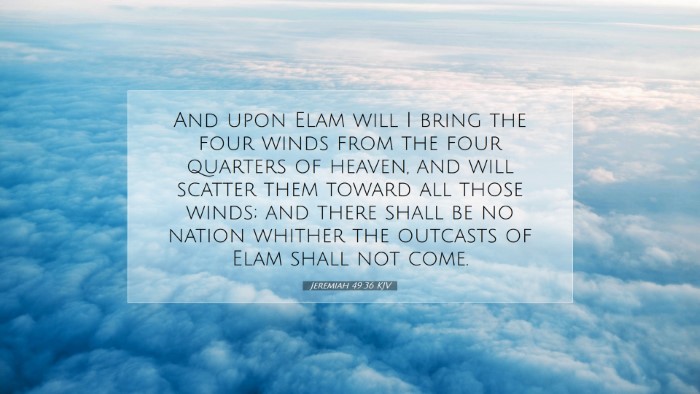Commentary on Jeremiah 49:36
Verse Text: "And upon Elam will I bring the four winds from the four quarters of heaven, and will scatter them toward all those winds; and there shall be no nation whither the outcasts of Elam shall not come."
Introduction
This passage from the book of Jeremiah addresses the fate of Elam, a region in ancient Persia (modern-day Iran). The significance of this verse extends beyond its immediate context, speaking to themes of divine judgment, restoration, and the sovereignty of God over nations.
Contextual Background
To understand Jeremiah 49:36, it’s crucial to consider its historical and prophetic setting. Elam, representing a significant power in the region, is prophesied to face destruction due to its rebellion against God. This prophecy highlights the broader theme within the book of Jeremiah regarding the judgment of nations and God’s ultimate control over human affairs.
Insights from Commentaries
Matthew Henry's Commentary
Matthew Henry emphasizes that God’s judgment upon Elam is indicative of His power and authority over all nations. He interprets the "four winds" as symbolic of comprehensive and total judgment—a sweeping action that covers every geographical aspect of Elam. Henry notes:
- No place will be free from the influence of this divine pronouncement.
- The scattering signifies not only judgment but also a type of restoration, as God would eventually bring back the scattered people.
Henry further reflects on the duality in God’s dealings: He is both just in punishment and gracious in restoration, which offers hope even in judgment.
Albert Barnes' Notes on the Bible
Albert Barnes provides a detailed exploration of the geographical reference to Elam within this passage. He elaborates on the significance of the “four winds” as manifestations of God's will being executed worldwide:
- The metaphor of the winds demonstrates the totality of God’s power, as winds can travel swiftly and affect distant lands.
- Barnes mentions the historical fulfillment of this prophecy, noting that the Elamites faced dispersal and eventual assimilation into surrounding nations.
Barnes points out the prophetic nature of the text, acknowledging that this scattering was prophetic not just in immediate form but carried implications for the broader understanding of God’s dealings with humanity throughout history.
Adam Clarke's Commentary
Adam Clarke focuses on the theological implications of God’s pronouncement against Elam. He delineates the nuance in the phrase “from the four quarters of heaven,” interpreting it as God’s universal dominion:
- This expression emphasizes that no part of creation is beyond God’s reach.
- Clarke elaborates on the idea of the "outcasts of Elam," suggesting that God’s judgment could lead to a dispersion that allows for eventual repentance and reconciliation.
Through Clarke’s lens, the scattering is not merely punitive; it is preparatory for future restoration, which God promises to undertake.
Theological Reflections
This verse imparts critical theological insights for pastors and scholars alike:
- Divine Sovereignty: The imagery of winds illustrates God’s control and sovereignty over creation and history.
- Judgment and Mercy: The tension between judgment and mercy is a recurrent theme in Scripture; the divine scattering signifies not only punishment but also the hope for eventual return and restoration.
- Missionary Implications: The concept of being scattered can spark reflections on the Great Commission and the dissemination of God’s people across nations, serving as a parallel to the Christian mandate to reach all nations.
Conclusion
Jeremiah 49:36 serves as a poignant reminder of both God’s judgment and His enduring faithfulness. For pastors and theologians, this passage underscores the call to acknowledge God’s sovereignty and the importance of living in obedience to His will. It also provides eschatological hope, affirming that God can bring restoration out of scattered circumstances. The commentaries from Matthew Henry, Albert Barnes, and Adam Clarke deepen our understanding of this text, enriching both personal and communal reflections on divine providence.


